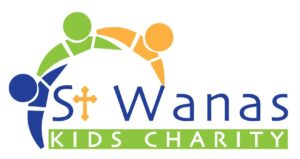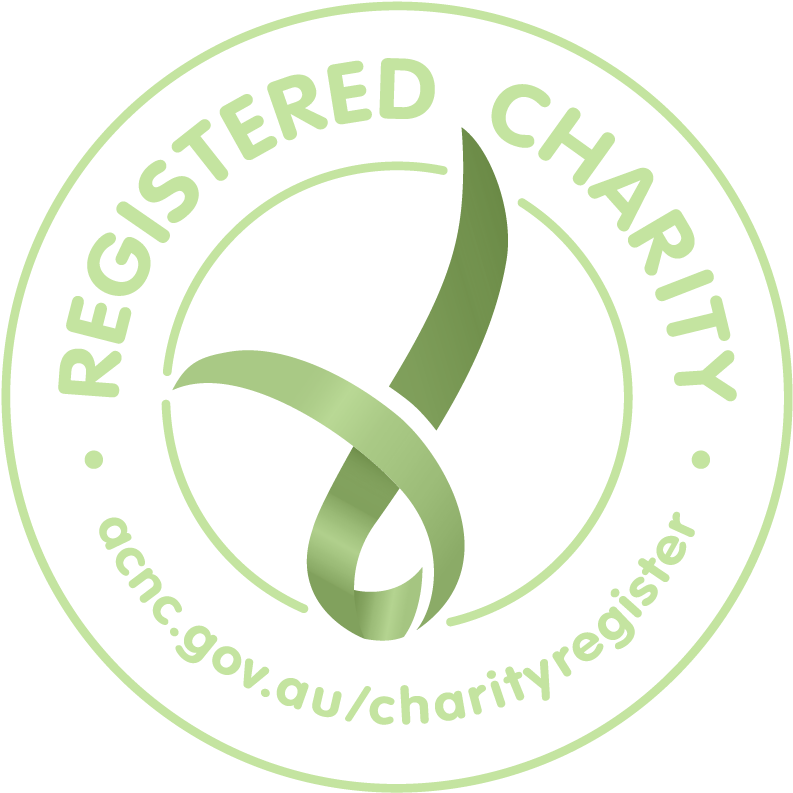Introduction/Policy Statement
All people, regardless of their age, gender, race, religious beliefs, disability, sexual orientation or family or social background have a right to feel safe, to be safe and to be protected from abuse, neglect or exploitation.
St Wanas Foundation (SWF) is committed to promoting and protecting the welfare and human rights of people that come into contact with SWF, particularly vulnerable persons who may be at risk.
Background/obligations
The Protection of Vulnerable People Policy aims to:
- Provide children with safety and protection.
- Set standards of responsible behaviour for all staff and participants both during work and leisure times.
- Support all staff and participants to make informed and confident responses to protection issues affecting children.
Definitions
ABUSE OR NEGLECT OR EXPLOITATION
Means all forms of physical and mental abuse,
exploitation, coercion or ill-treatment, including:
(a) sexual harassment, bullying or abuse;
(b) sexual criminal offences and serious sexual criminal offences;
(c) threats of, or actual violence, verbal abuse, emotional or social abuse;
(d) cultural or identity abuse such as racial, sexual or gender-based discrimination or hate crime; and
(e) abuse of power.
AT RISK
Means at risk of abuse, neglect or exploitation.
CHILD
Any person under the age of 18 years.
EXTERNAL AUTHORITY
Includes the police and any relevant authority.
REASONABLE GROUNDS TO SUSPECT
Means a belief, based on some information, that a person has experienced, is experiencing or may experience abuse, neglect or exploitation. Proof is not required, a suspicion based on information is sufficient.
Questions that may help a person to determine whether they have reasonable grounds to suspect include:
- Could you explain to another person why you suspect something? This helps to make sure that your suspicion is based on information.
- Would an objective other person, with the same information as you, come to the same conclusion? This helps to ensure the suspicion is as objective as possible.
SAFEGUARD
Means protect the welfare and human rights of people that interact with, or are affected by [EHGC], particularly those who are vulnerable or at risk.
VULNERABLE PERSON
Any person, who is, or may be in need of care services. This may be because of a mental or other disability, age or illness. The person may be unable to take care of him or herself or unable to protect him or herself against significant harm or serious exploitation.
We recognise that some populations, groups and communities are at a higher risk for poor health or abuse as a result of the barriers they experience to social, economic, political and environmental resources, as well as limitations due to illness or disability. Many of these systemic structures and systems intersect on multiple levels to: oppress, create barriers and overlapping forms of discrimination, stigma, and power imbalances based on characteristics such as Aboriginality, gender, sex, sexual orientation, gender identity, ethnicity, colour, nationality etc.
This broad definition of vulnerable person, underpinned by human rights principles, encompasses ‘adults at risk’ a term being used in some contexts to promote a focus on risk factors rather than on an individual.
Procedure/Policy details
All people working in or with SWF must help to safeguard people by:
(a) maintaining a safe environment for persons in the course of their work;
(b) ensuring that, if they have reasonable grounds to suspect a person is at risk, they report the suspicions internally and (if required or appropriate) to an external authority; and
(c) immediately contacting the police if they believe a person is at immediate risk.
The Board is responsible for the protection of people that interact with, or are affected by SWF. It must ensure that:
(a) SWF has appropriate and effective policies and processes in place to protect people and that these policies and procedures are implemented;
(b) SWF complies with all relevant laws (both Australian and, where relevant, overseas laws) relating to safeguarding, including, in respect of children; and
The Executive Director of SWF must:
(a) take reasonable steps to protect people, including developing and implementing processes and policies;
(b) manage safeguarding and legal compliance;
(c) ensure that reports are made to external authorities when required or appropriate;
(d) manage reports of abuse, neglect or exploitation;
(e) ensure that all Board members, staff, volunteers, partners, contractors and third parties are aware of relevant laws, policies and procedures, including SWF Code of Conduct;
(f) ensure that all Board members, staff, volunteers, partners, contractors and third parties are aware of their obligations to report suspected incidents of abuse, neglect or exploitation;
(g) provide support for all Board members, staff, volunteers, partners, contractors and third parties in undertaking their responsibilities;
(h) comply with the requirements under State and Territory Reportable Conduct Schemes.
All Managers/Coordinators/Supervisors must:
(a) promote a positive culture towards safeguarding;
(b) implement this Policy in their area of responsibility;
(c) ensure that there are appropriate controls in place to prevent, detect and respond to incidents;
(d) facilitate the reporting process when someone has reasonable grounds to suspect; and
(e) ensure potential incidents are handled with accountability and transparency and with a survivor-centric approach.
All Board members, staff and volunteers of SWF must:
(a) familiarise themselves with the relevant laws, the Code of Conduct, policies and procedures for safeguarding;
(b) report any incident to the Executive Director and (if required or appropriate) to an external authority when it is reasonable to suspect that a person’s safety or welfare is at risk;
(c) report any suspicion that a person’s safety or welfare may be at risk internally or to an external party; and
(d) provide an environment that is supportive of everyone’s emotional and physical safety.
All partners, contractors and third parties of SWF must:
(a) implement the provisions of this Policy and SWF’s procedures in their dealings with EHGC; and
(b) report any suspicion that an incident may have taken place, is taking place, or could take place to the Executive Director and (if required or appropriate) to an external authority.
Managing safeguarding risk
SWF will manage risks of safeguarding according to the following concepts:
(a) Holistic – SWF will regularly assess the risks to people in its operations and develop proportionate controls to mitigate those risks.
(b) Survivor-centric – SWF will put survivors at the heart of its approach to safeguarding.
(c) Lawful – SWF will ensure that it understands and complies with the law in everything it does, in all jurisdictions in which it works.
SWF will manage the risk of safeguarding by:
(a) having up-to-date and documented risk assessments;
(b) maintaining a register of SWF’s legal obligations for safeguarding and workplace health and safety in all the jurisdictions in which it operates;
(c) having an action plan that sets out how it will manage safeguarding;
(d) having an incident response plan;
(e) adhering to this Safeguarding Policy and its Code of Conduct;
(f) doing all reasonable due diligence checks of Board members, staff, volunteers, partners, contractors, and third parties, including interviews, qualification checks and (for people that come or will come into regular or ongoing contact with children in connection with SWF’s programs) have a valid Working with Children Check or overseas equivalent (if available);
(g) implementing policies, procedures and systems that introduce controls to reduce the likelihood and consequence of incidents;
(h) conducting awareness-raising for stakeholders on risks, expectations, individual responsibilities, this Policy and reporting procedures;
(i) maintaining two reporting processes: a confidential reporting process and an overt reporting process;
(j) monitoring and reviewing the effectiveness and proportionality of its safeguarding approach;
(k) take steps to increase awareness within SWF of the importance of a safe place for vulnerable persons;
(l) maintain responsive procedures for fulfilling mandatory reporting obligations; and
(m) maintain responsive procedures for dealing with complaints and issues as they arise.
Privacy and data protection
All personal information considered or recorded must respect the privacy of the individuals involved unless there is a risk to someone’s safety. SWF will protect personal information obtained in connection with this Policy in accordance with its Privacy and Confidentiality Policies.
Reporting
Reporting processes are communicated to all personnel as part of the training process.
What needs to be reported
Volunteers, Staff and participants must report:
- breaches in protocols or non-compliance to risk assessments, policies, and terms and conditions
- any behaviour that is suspected of being child exploitation or abuse.
A concern that leads to a report may be the result of:
- directly observing something that leads to concerns
- being told about incident or situation from someone else
- having someone disclose that they have been abused
- hearing the abuser disclose what they have done.
Four-step reporting process
SWF has a four-step reporting process to be followed.
- An incident or issue is observed or reported.
- Alert manager.
- Manager communicates with the Child Protection Officer.
- Next steps are decided upon and action is taken.
Responding to breaches of protocol
All personnel have a duty of care to support and protect children. A duty of care is breached if a person:
- fails to follow our risk assessment control measures, terms and conditions, and the best practice guidelines outlined in our training
- acts in a way that harms someone.
We will investigate breaches with a fair, unbiased and supportive approach.
Responding to suspicions or allegations of abuse
It is not the responsibility of SWF staff, participants or partners to decide whether a person is being abused or exploited.
The process is to report the incident so that the Child Protection Officer and managers can follow reporting guidelines and take action.
Responsible members
This Policy applies to all Board members, staff, volunteers, partners, contractors and third parties of SWF
Policy Monitoring and Review cycle
The Board must comply with this policy and review compliance as part of its standard self-evaluation.
If the Executive Director or Board have reason to believe that this policy has not been complied with, they must investigate.
References
The Global Volunteering Standard (2021)
Guidelines for Industry on Child Online Protection (2015)


